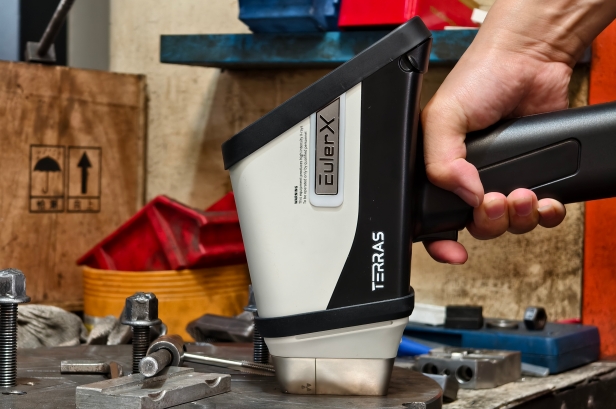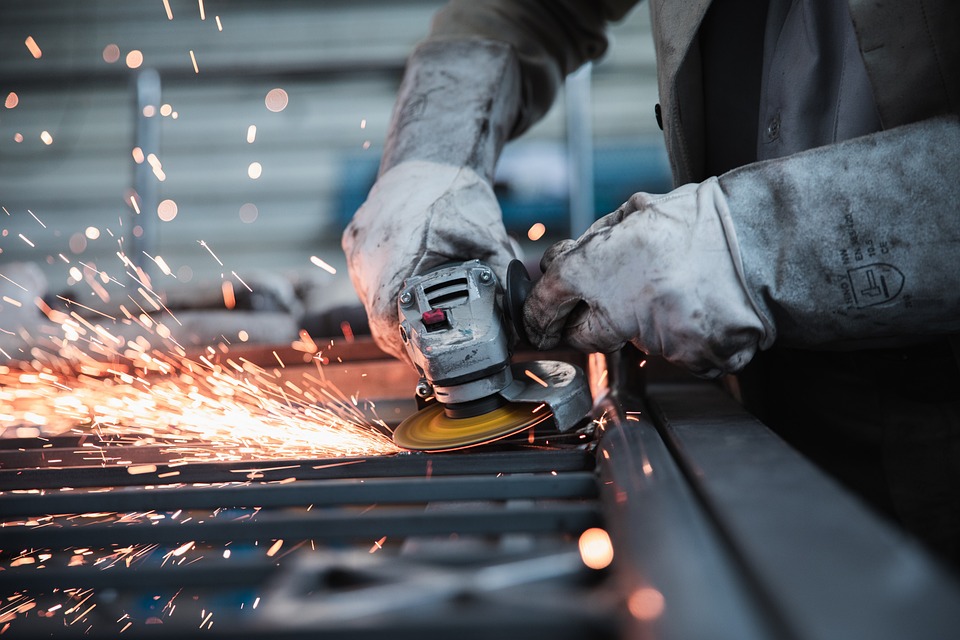
Alloy
A high-tech enterprise focusing on the development and application of X-ray technology products, committed to becoming a leading supplier of X-ray industrial testing solutions.
Metal Analyzer Calibration: Why It Matters for Accurate Results
In a world increasingly reliant on technology and precision, metal analysis is crucial in a wide range of industries, from manufacturing and recycling to environmental monitoring and quality control. Whether you're working with a handheld metal analyzer or a sophisticated laboratory instrument, calibration is a key step that ensures accuracy and reliability in your results. But why exactly does metal analyzer calibration matter? Let's break it down.
What Is Metal Analyzer Calibration?
At its core, calibration is the process of adjusting or fine-tuning an instrument to align its measurements with a known standard or reference. For metal analyzers, this involves ensuring that the instrument can accurately measure the composition of a sample, whether that’s a metal alloy, a piece of scrap metal, or even a trace element in the environment.
Calibration typically involves comparing the analyzer’s readings against a set of known values (standards) and adjusting the device if necessary. For handheld X-ray fluorescence (XRF) analyzers, for example, calibration might be performed by scanning reference materials with known compositions, ensuring that the analyzer's results align with the true composition of the sample.

Why Does Calibration Matter?
Ensuring Accuracy and Reliability
The most important reason for calibrating a metal analyzer is to ensure that the results are accurate. If an analyzer is not calibrated properly, it can provide incorrect readings that could have serious implications, especially in industries where precision is critical.
For instance, in manufacturing, an improperly calibrated analyzer could lead to defects in a product due to incorrect measurements of materials. In environmental monitoring, a miscalibrated analyzer might give false readings that fail to detect hazardous metal contamination, risking public health and safety.
Meeting Industry Standards and Regulations
In many industries, metal analysis is governed by strict regulations and standards. Calibration ensures that the equipment meets these requirements. For example, in the recycling industry, metal analyzers are used to sort and separate various metals. Incorrect analysis could result in materials being misclassified, which could violate environmental regulations or lead to financial penalties.
In the medical or pharmaceutical industry, metal impurities must be identified to meet strict standards of purity, and inaccurate readings could lead to health risks or legal issues.
Increasing Equipment Lifespan and Efficiency
Regular calibration also helps in maintaining the longevity and efficiency of the analyzer. Over time, any instrument may experience drift in its readings, especially under harsh operating conditions. Regular calibration can catch these deviations early, preventing long-term damage and ensuring that the analyzer is performing at its best.
Moreover, a properly calibrated analyzer can operate more efficiently, reducing the time and effort required to obtain accurate results. This means fewer retests, less downtime, and a more streamlined workflow for operators.
Cost Savings and Waste Reduction
The importance of accuracy in metal analysis cannot be overstated when it comes to cost control. For manufacturers, getting the right material composition from the start helps to reduce waste and avoid rework. Misclassifying metals or alloys could result in expensive mistakes, like using the wrong material for a product or not detecting contamination early enough.
Calibrating your analyzer regularly also minimizes the need for expensive repairs or replacements. By catching issues early, you can avoid the costs associated with running a faulty instrument.
Improved Confidence in Your Results
One of the most significant benefits of proper calibration is that it fosters confidence in your results. Whether you're conducting research, managing a production line, or ensuring quality control, knowing that your measurements are accurate gives you the peace of mind to make data-driven decisions. This reliability is key when presenting results to clients, regulatory bodies, or colleagues.
When Should You Calibrate?
Calibration isn’t a one-time task; it’s an ongoing process that depends on the usage and environment of the analyzer. Some common guidelines include:
After heavy usage: If the analyzer has been used extensively or in harsh conditions, it may be time for a calibration check.
After maintenance or repair: If the instrument has been serviced or repaired, a recalibration should be performed.
As part of routine checks: Some industries require periodic calibration as part of their quality assurance protocols. Even if your analyzer hasn’t been misused, routine checks ensure ongoing accuracy.
Before critical measurements: If you're preparing for a particularly important test or project, calibrating your instrument beforehand is a good precautionary measure.
The EulerX900S XRF Spectrometer delivers decision-grade analysis anywhere. This portable lab provides precise measurement of elements from Magnesium to Uranium, enabling superior quality control, profitable scrap recycling, and confident environmental assessment. Built for harsh environments, it features intuitive touchscreen controls and built-in Wi-Fi to transform raw data into clear, instant reports.

Terras EulerX900 Handheld Alloy Analyzer
Conclusion
Metal analyzer calibration is not just a technical requirement; it’s an essential process for ensuring the accuracy, reliability, and efficiency of your metal analysis. Whether you're working in manufacturing, environmental science, or quality control, ensuring that your analyzer is properly calibrated can save you time, money, and headaches in the long run.
Investing in regular calibration, proper maintenance, and the right reference materials can go a long way in ensuring that you get the most accurate and dependable results from your metal analysis equipment. The bottom line? Precision counts—so calibrate your analyzer regularly, and trust the results you get.
About Terra Scientific
Terra Scientific is a high-tech manufacturer specializing in the development and application of X-ray technology products. We are committed to becoming a world-class provider of X-ray industrial inspection solutions. Terra Scientific currently offers a range of products to global customers, including handheld alloy analyzer, handheld precious metal analyzer, handheld mining analyzer, benchtop precious metal analyzers, in-line analyzer, and spectrometer modules, along with XRF analyzers. We continuously serve global clients in fields such as mechanical manufacturing, metal processing, aerospace, petrochemicals, mining and geology, food safety, environmental protection, and scientific research.
To learn more, please don't hesitate to contact us via email at sales@terra-scientific.com, or visit our website at http://www.terra-scientific.com
Join Us
Subscribe to our email list for updates & promotions.



